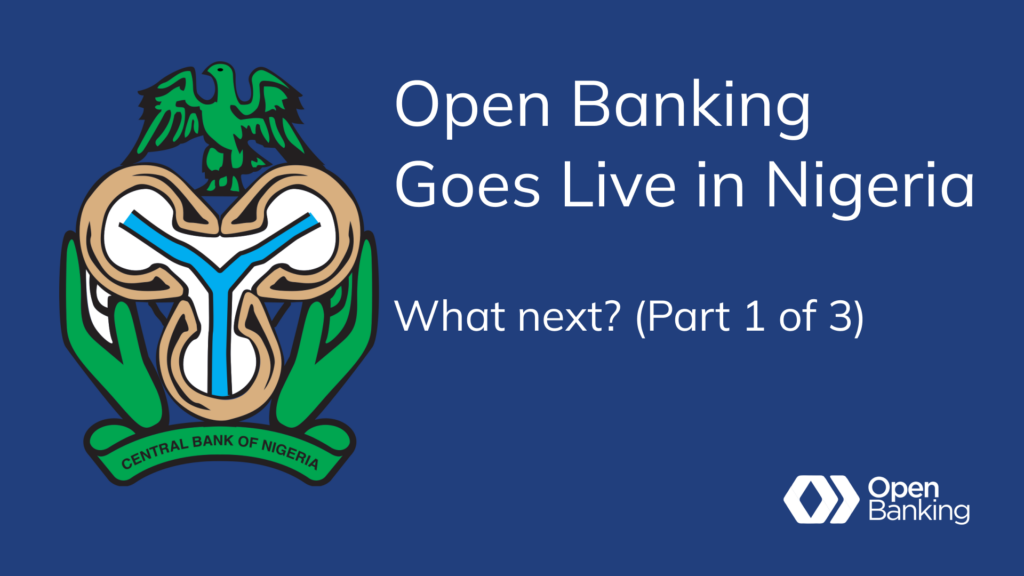By Yvonne-Faith Elaigwu
Subsequent to the release of the final guidelines from the Central Bank of Nigeria for open banking, the question for everyone has been, what’s next?
While some stakeholders are simply excited that a framework now exists, some have questions, and others are just not sure what the regulatory guidelines really mean. The one thing that we all seem to agree on (or believe) is that open banking will create a more competitive, innovative, and customer-centric financial ecosystem that will contribute to the growth of Nigeria’s economy.
The guidelines clearly place the customer at the center of it all, after all the data being shared will be theirs; the customer must know what data is being shared, how long data will be retained, must be able to request data erasure and the customer must explicitly give consent before any data exchange. It is very clear that customer data/transactions must be within a secure system and predicated on a properly spelled out agreement that includes fees, SLAs, and complaint resolution frameworks between the key players; Banks (API Providers) and Third Party Providers (API Consumers).
The Operational Guideline lays out the expectations regarding interoperability, data management, privacy, reports, dispute management, and communication between the API Provider and API consumer. The guideline also provides a readiness checklist for stakeholders, specifying the responsible parties and whether or not they are mandatory.
So what next? How do we proceed? What are the specifics? Will there be specifics? When does this take effect? While this article cannot answer all these questions, it can attempt to provide some perspective on what the next steps could be, leaning into our understanding of how regulations typically work and how Open Banking has played out in other parts of the world.
API Providers and Consumers Position for compliance
Following the issuance of the final guidelines, all API Providers and Consumers in the financial sector will seek to understand how the guidelines apply to them and what they must do to position themselves for compliance as they will be bound by these final guidelines. API providers will prepare to standardize their APIs for interoperability while the API Consumers will begin to explore the statutory and security requirements to access data under Open Banking.
Open Banking Nigeria finalizes API standards
Open Banking Nigeria had as a part of its advocacy program built a sandbox and draft API standards, with the final guidelines, the Foundation will finalize the extended API standards, taking in the recommendations made by the CBN.
CBN communicates technical standards
Having communicated the final guidelines, the CBN will also provide guidance for some of the technical implementation. For example, how the open banking registry will work and if banks must check the endpoint for every open banking transaction. The CBN will also weigh in on how consent would be implemented, and what are the basic minimums for UX.
CBN communicates an implementation plan
Having communicated the final guidelines, the CBN will provide the Nigerian financial ecosystem with an implementation plan. This is typically a schedule with timelines within which all banks and fintechs are expected to implement the standard and the operational readiness checklist. It is expected that this stage will be characterized by a flurry of activities; partnerships between API Providers and Consumers, testing, and certifications.
Marching Orders
There is a chance that the implementation plan will have one or two periods of grace so that the industry is fully ready before a hard stop is set to enforce compliance. It is expected that the apex bank will issue marching orders at some point, after which non-compliance becomes frowned upon. It is safe to say that after these orders, the Nigerian financial ecosystem will be said to be largely Open Banking compliant as per the set standard and guidelines.
Open Banking Nigeria will continue to provide updates as these steps unfold, providing industry support, training, and other guidance required to promote the adoption and seamless implementation of the open banking standards for participants.
Require more insights or have questions? You can always contact the Open Banking Nigeria team at [email protected].
Open Banking API Standard is brought to you by the Open Technology Foundation, an NGO backed by a group of industry experts across banking, fintech, risk management, and more.
Together, we are building a common standard for Nigeria.
